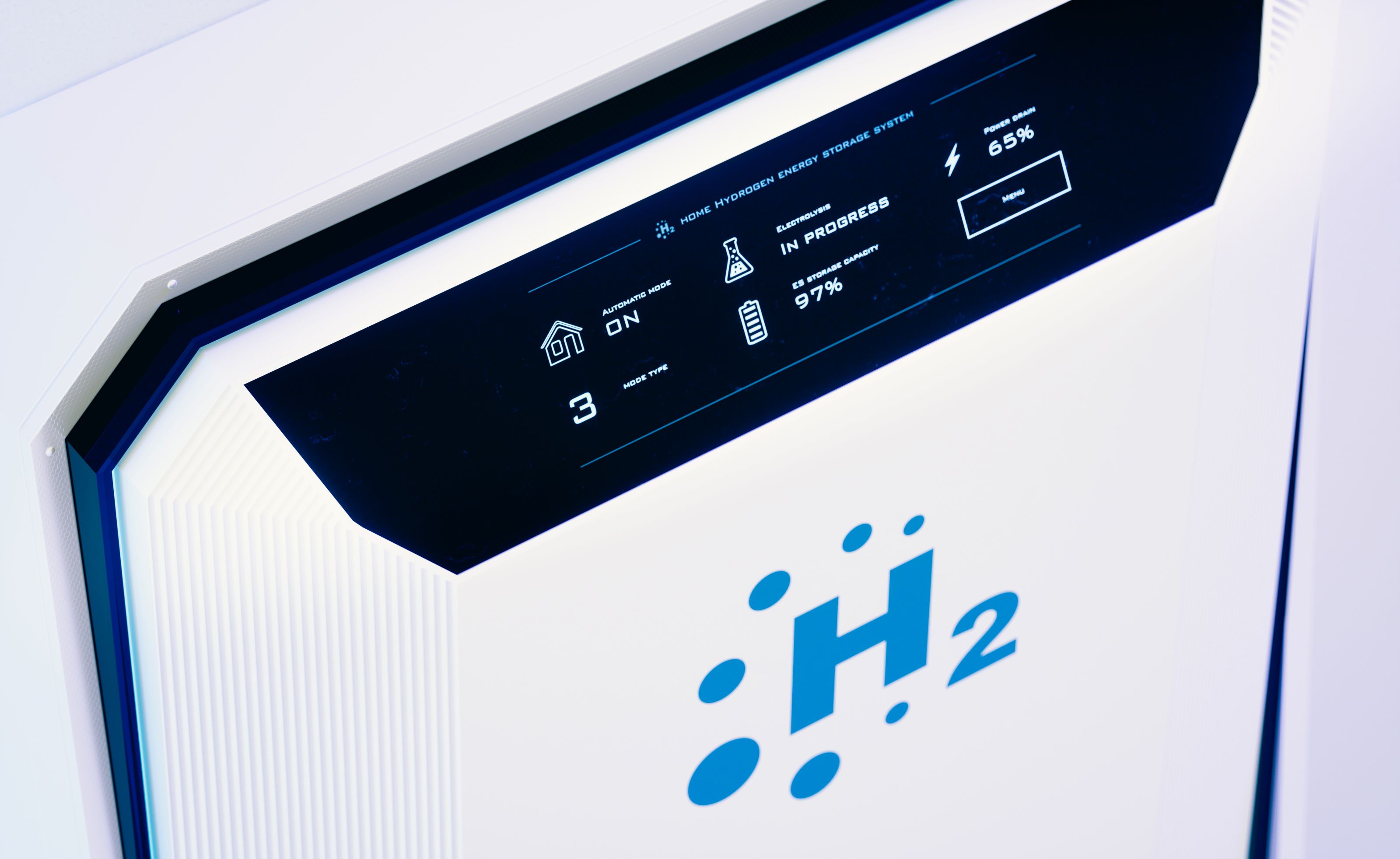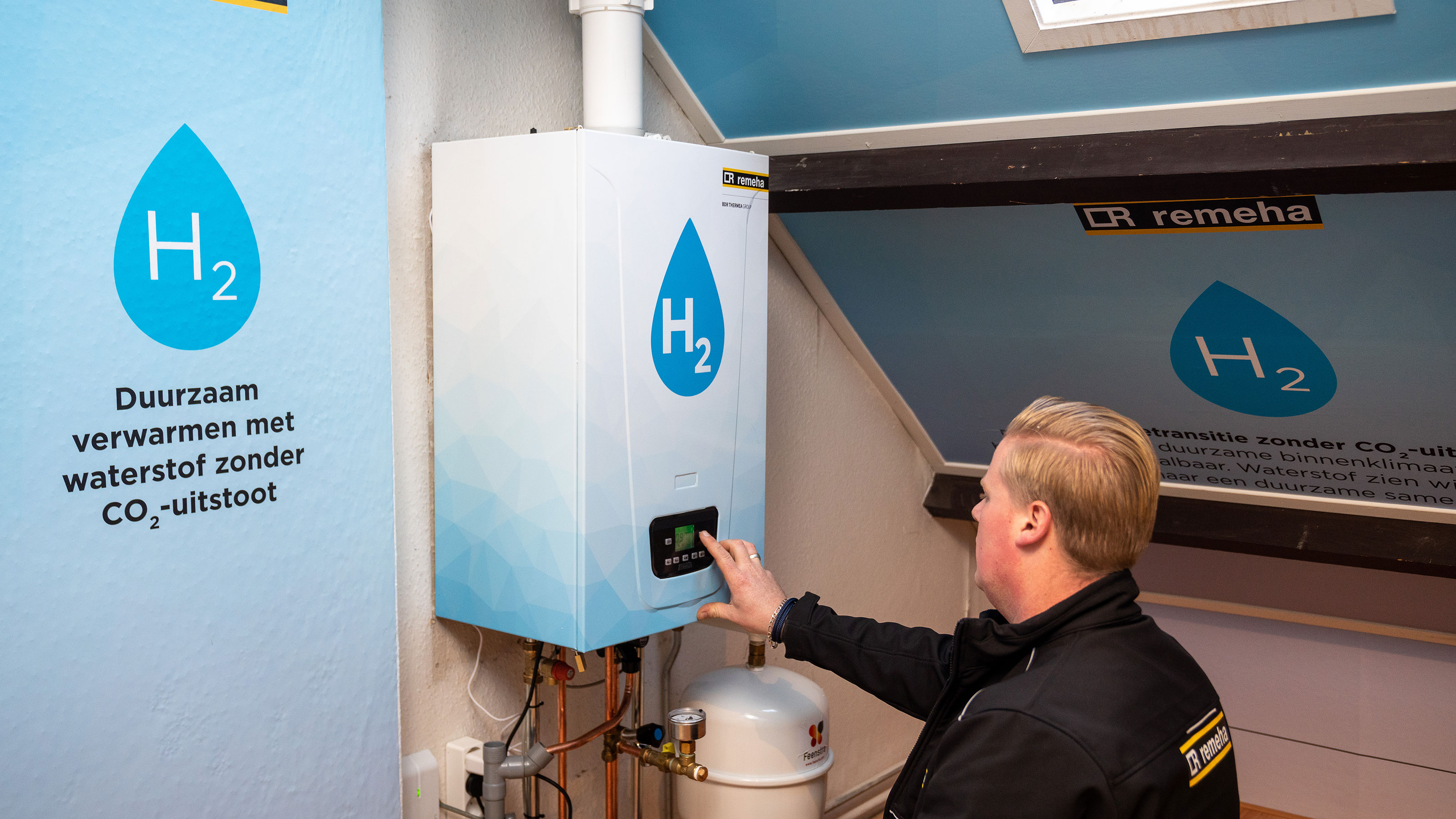How this Energy Security Bill almost forced homes to replace their gas boilers
Government proposal would have granted energy companies power of entry to forcibly install hydrogen heating or heat pumps to replace gas boilers

Bring your dream home to life with expert advice, how to guides and design inspiration. Sign up for our newsletter and get two free tickets to a Homebuilding & Renovating Show near you.
You are now subscribed
Your newsletter sign-up was successful
Following strong local opposition during a 10-month consultation process, energy companies British Gas and Cadent have changed their proposal to create the UK's first hydrogen-fuelled village.
The initial proposal would have forced nearly 2,000 homes in the village of Whitby, Cheshire, to switch from natural gas to hydrogen heating or face having their gas supply cut off.
However, after a significant backlash, the companies have now given residents the option of either adopting hydrogen or continuing to use natural gas for their home energy needs.
What is the Energy Security Bill and what powers does it give energy companies over homeowners?
The planned Energy Security Bill proposes a trial in a village where approximately 1,000-2,000 properties would be converted from natural gas to hydrogen heating.
Spearheaded by gas networks the trial would test the feasibility of repurposing the existing gas network infrastructure in the local area for 100% hydrogen use in order to create the UK's first "hydrogen village".
However, the planned Energy Security Bill provides the gas distribution networks (GDNs) the right to go into people’s homes and install hydrogen boilers without their consent.
The Energy Security Bill also includes draft proposals for a "hydrogen levy" on consumers' energy bills to help fund hydrogen production in the future.
Bring your dream home to life with expert advice, how to guides and design inspiration. Sign up for our newsletter and get two free tickets to a Homebuilding & Renovating Show near you.
One peer Baroness Worthington, who was the lead author of the UK's 2008 Climate Change Act, was scathing about the powers the Energy Security Bill would grant private companies. She called it: "“inefficient, potentially dangerous and expensive experiment” that “serve[d] the interests of gas distribution and boiler companies”.
It is unclear how she will vote when the Energy Security Bill reaches the House of Lords.
Why were the households going to be forced off gas?
The government clarified that the use of hydrogen boilers would not be mandatory with heat pumps as an alternative option and that Gas Distribution Networks (GDNs) would only exercise their power of entry "as a last resort".
According to Cadent, one of the GDNs, they would have only exercised their authority to enter a person's home only to guarantee their safety, leveraging the same powers already held by gas companies to prevent gas leaks.
On the other hand, Northern Gas Networks maintained that they may have entered a person's home if they refused to switch from gas, as they claimed doing so could compromise the safety of the trial.

How were they able to keep their gas boilers?
Residents of Whitby were able to keep their natural-gas boilers after significant protests to the proposal.
A number of concerns were raised, such as safety concerns regarding hydrogen, which included uncertainties over pipe leakage and brittleness, despite government assurances that safety was a priority in the trial.
Additionally, residents also pointed out that hydrogen can be less cost-effective and less efficient than alternative eco-friendly solutions such as heat pumps, electric boilers, and district heating.
Although the trial would have been subsidised for the first two years of the trial, beyond this point residents would have been required to pay the costs of the heating.
What is going to happen with the Energy Bill now?
The government's plans to create the first hydrogen-fuelled village will continue as planned as later this year the government will announce the site of the pilot, with Redcar in Teesside being considered as a potential alternative location.
Marc Clarke, Cadent’s head of hydrogen consumer, has announced a number of changes to the scheme in response to the residents of Whitby's complaints.
He stated that now participants who choose to participate in the pilot program will receive a cash payment of £2,500, along with newly installed hydrogen appliances that will be maintained free of cost for the duration of the program.
Additionally, Cadent has confirmed that at the end of the trial, homes will be reconnected to their natural gas supply, and new natural gas-powered appliances will be installed at no additional charge.
In addition to this, Clarke announced, "Our new proposal means that you will have a choice to participate or not, and there will be two options to choose from. You can either choose to get involved with the hydrogen village programme, and help pave the way to a greener future. Or you can choose to stay on natural gas if you do not wish to participate.”

News Editor Joseph has previously written for Today’s Media and Chambers & Partners, focusing on news for conveyancers and industry professionals. Joseph has just started his own self build project, building his own home on his family’s farm with planning permission for a timber frame, three-bedroom house in a one-acre field. The foundation work has already begun and he hopes to have the home built in the next year. Prior to this he renovated his family's home as well as doing several DIY projects, including installing a shower, building sheds, and livestock fences and shelters for the farm’s animals. Outside of homebuilding, Joseph loves rugby and has written for Rugby World, the world’s largest rugby magazine.
